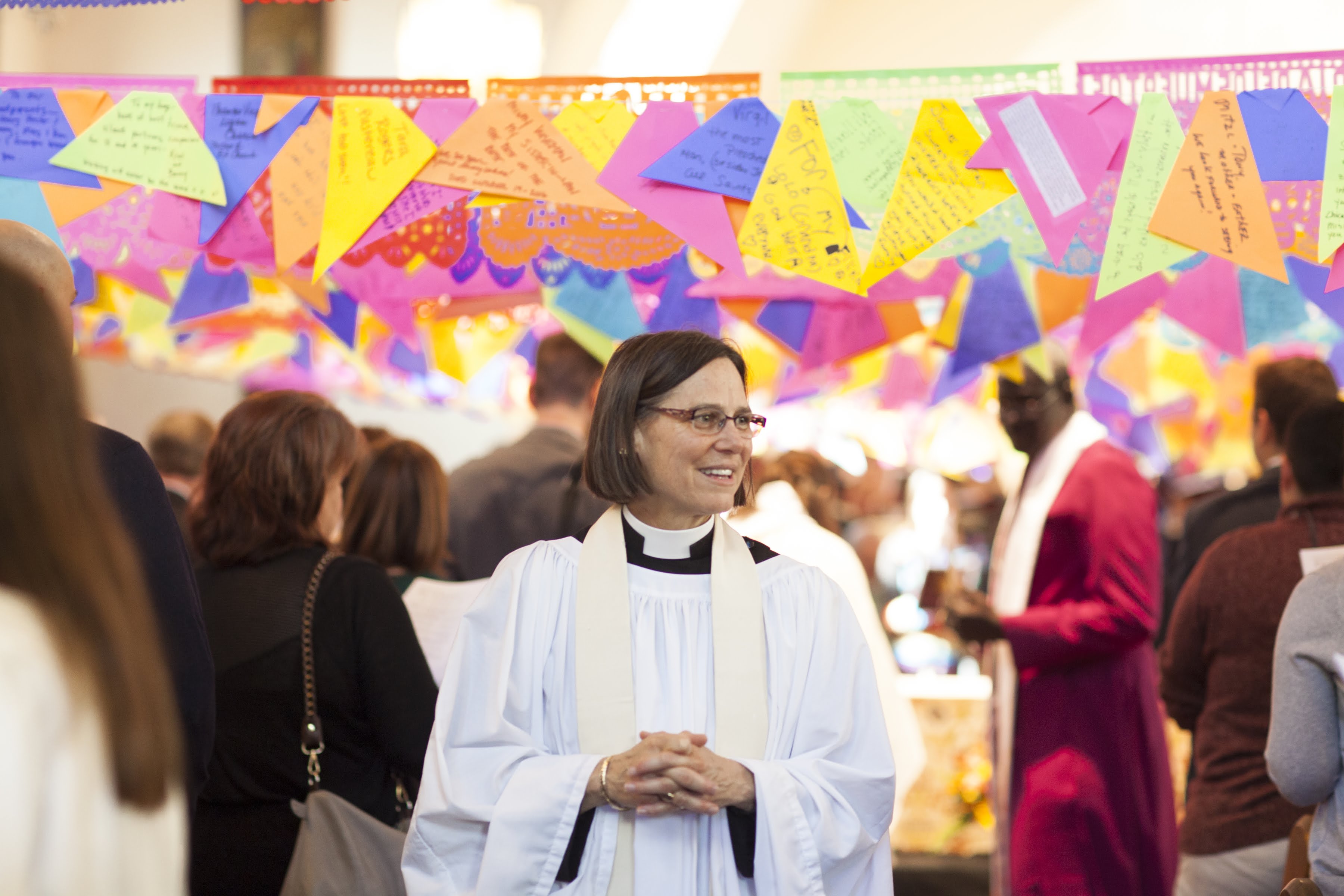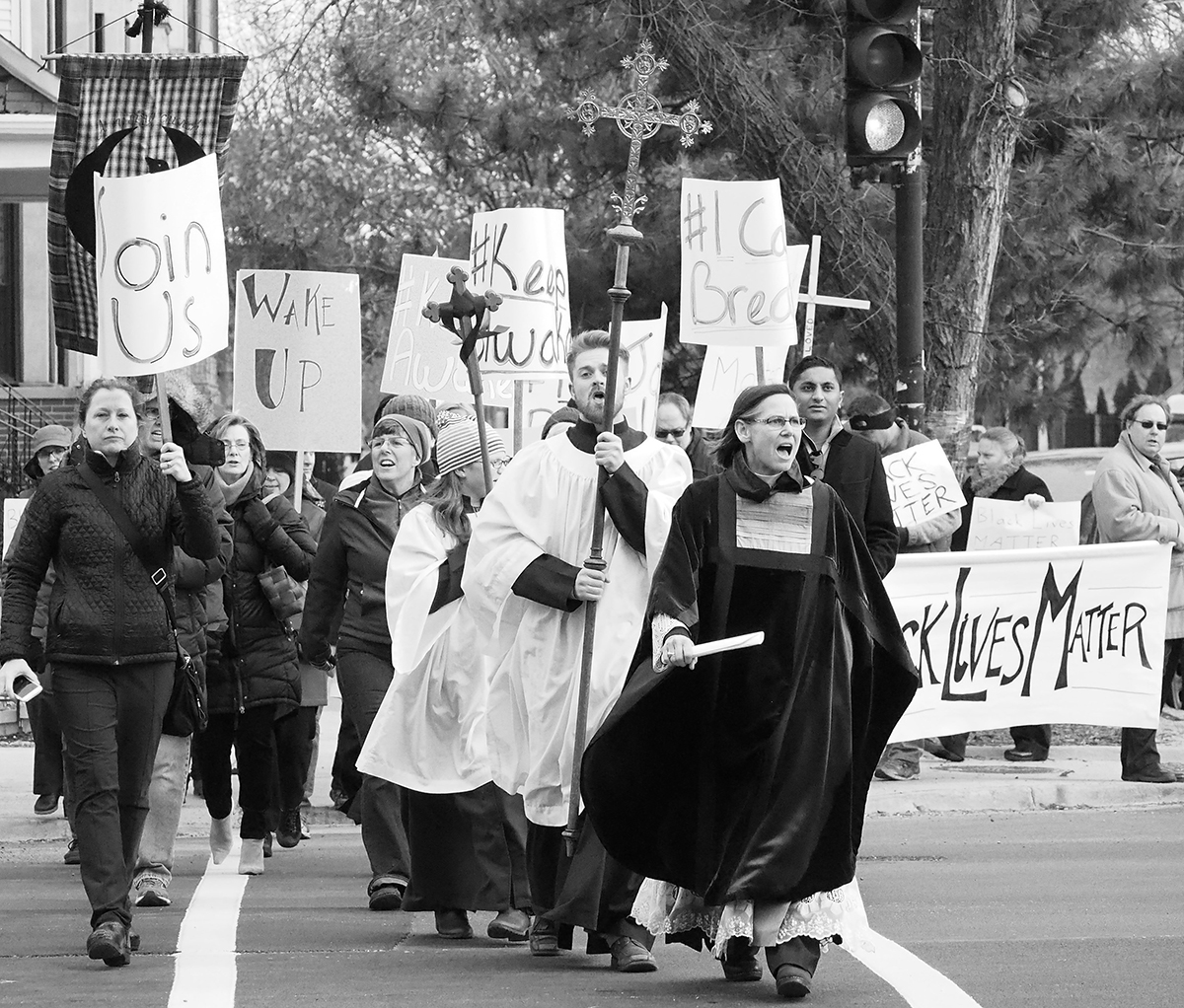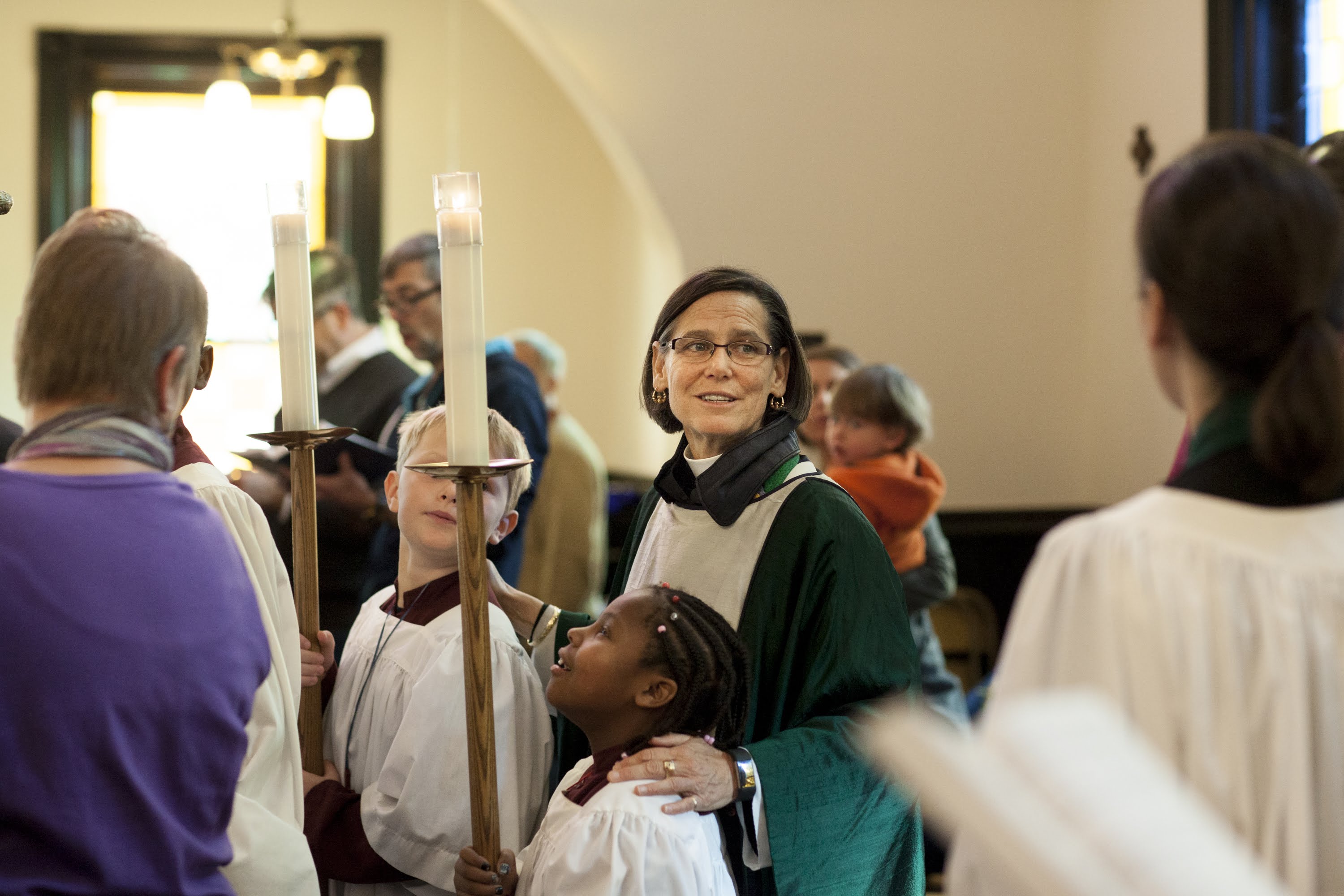We interviewed Rev. Bonnie Perry ‘88, the Bishop-elect of the Episcopal Diocese of Michigan, and the first openly-gay woman to be elected to that post.
You’re stepping into a new position, which gives you the opportunity to think about the future direction of the church and what you would like to bring. What do you think are some of the biggest challenges facing the church today?
While I have a lot of ideas, I know there are people who have been in Michigan for far longer than me and know so much more. I’m hoping to spend a lot of time listening and figuring out what people are wanting to do. With that said, I think the church writ large has allowed ourselves in many cases to be sidelined from the public discourse. I long for all of our congregations to be places where people know what gospel values are: including people, caring for people, working against racism, and really looking at the structural inequalities in our political system and saying this does not fit with what we are called to do as followers of Christ.

You’ve stressed the importance of local parishes and local communities. Could you say a little bit more about how you see it as your role and calling as you step into the Bishop role to work with local congregations?
I think ministry is absolutely everywhere and never limited to just our churches, and to think that it’s only happening in our churches and not out in the world is a fallacy. I believe dioceses and hierarchy needs to be inverted, and my role in the midst of hierarchy is to support the people who are doing ministry at a local level. To give absolutely everything I can to care for our clergy, to bring resources and encouragement, to learn what they are looking and longing for, and to help assist them in making that happen. It cannot be about a larger bureaucratic structure, because I don’t think Jesus set out to create that. I believe Jesus is a movement that we have made into an institution, and the call is to make use of the parts of an institution that are life giving to provide energy and power to local ministry.
It sounds like you’re engaging in a radical redefinition of what power looks and acts like, how do you see that flowing out of the Gospel?
I don’t think it’s a radical redefinition, I think it’s Biblical. Maybe it’s radical in the meaning of getting back to the root, but I think it’s about being called to do what Jesus was doing in the first century. The people heard what Jesus was doing, they experienced him, they saw what he was doing, and they encountered followers whose lives were completely upended by his ministry, his death, and his resurrection so much so that they went to the ends of the earth. I think it’s for us to recapture and remember that, to have this sense of agency: We can literally impart Gospel values and make them a reality.
I was just talking with the director of our community kitchen and food pantry, who is a young man that happens to be gay. We were talking about how Pride flags are everywhere, and he was talking about the increased corporate concern for Pride. While I am grateful for this incredible gift which shows how far we’ve come, I think we always need to be slightly suspicious of that. I don’t want queer folks and Christians to be subdued by acceptance, but to always ask “Who’s not here and what am I doing to prevent them from being here?” I think sometimes acceptance can cause us to relax and forget that there are still lots of other people who are being overlooked. One of the things I feel called to look at as a white woman is issues of race and systemic racism. The way these play out in our church structures, our government structures, our schools, how it plays out everywhere and what it would mean to confront my complicity in this.
Can you talk about what it means to be the first openly gay woman elected Bishop in the diocese?

To me it’s a confirmation of the DNA of the diocese of Michigan. Wendell Gibbs, an African-American man who was Bishop for 20 years, was a stunning advocate for LGBT people, women, and looking at issues of race and inclusion. His predecessor, Stuart Wood, was on the forefront of issues regarding women, queer people, and inclusion. His predecessor, Coleman McGehee, did the exact same. It’s literally in the chromosomal makeup of the diocese of Michigan and I really feel like I am the beneficiary of that milieu.
Sometimes in the church we talk about systems and how the systems aren’t working, but I think we also need to recognize the moments when the system is healthy and works. To see this legacy of justice and inclusion in the diocese of Michigan for 50 to 70 years is amazing and I feel really blessed.
What does queer faith mean to you, how does your queer identity inform the ministry that you do?
I am who I am and who God is calling me to be, and my hunch is that queer identity and queer theology has everything to do with embracing who God is calling and creating people to be.
How did you feel like your time at Union prepared you for your work in pastoral ministry?
Union is amazing! I’m so glad that I went to Union Theological Seminary for my Masters in Divinity. I learned to preach and about community organizing against injustice, and in the late 80’s we were even organizing against the administration. Union taught me how to see the injustice in the environment which I was living and to then say, “Let’s do something about it!”
The other thing I got was a critical eye, there’s a sense of what’s going on here and always analyzing and breaking down the text while looking at power; who has it, who doesn’t, why don’t those people have it, why don’t other people have it? It taught me that power is morally neutral and to not be afraid of it, but to say we can gather power to implement gospel values. That was something I saw, embodied, and wrestled with at Union in a way that I don’t think many other seminaries offer.
What would your advice be to Union students as they embark upon their journey here, particularly for folks who want to enter into parish ministry?

Really hone your critique skills, know scripture and learn how to marinade in it, and then love the people who are hanging out in our congregations – love them, learn from them, and see where you can go together.
You can break down, analyze, and critique, but then the Gospel also calls us to build, create, formulate, and enact something new and that’s the fun part. That’s where the power is and that’s also tedious, because change takes time. It’s super easy to say this is wrong, this is wrong, and this is wrong. Though to actually change something there’s the tedious work of trying something, implementing it, laughing when part of it doesn’t work, figuring out what can get it working, and doing it over and over and over again until suddenly you have Pride flags on poles everywhere.
What would you say to EDS students thinking about entering Episcopal churches?
I really feel like you get the best of all worlds. EDS at Union gives you the depth of a divinity school, intellectual rigor, as well as the Anglican formation of an Episcopal seminary. That’s worth more than the price of admission.
